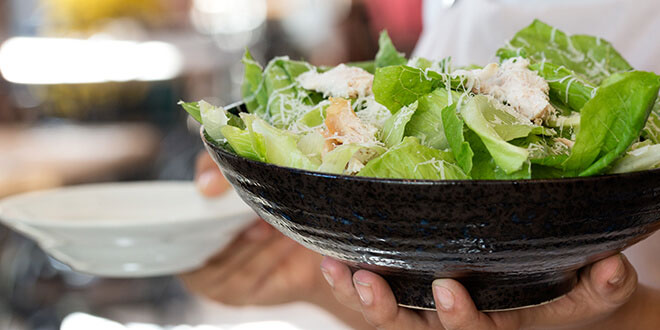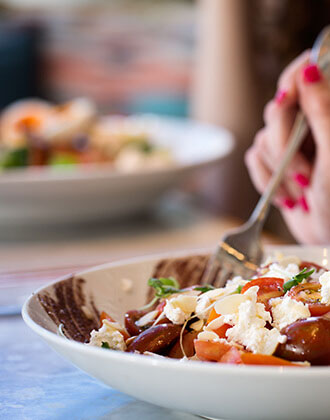Do I need to follow a special diet? Is there something I can't eat?
After any type of surgery it takes a while for your body to adjust, and the same is true after your ileostomy surgery. In time you’ll find that you should be able to eat many of the same foods you used to eat. However, there are foods you should avoid, and you will also be drinking more fluids than you did before.
Below are some general food guidelines that are helpful for people who have an ileostomy. However, if your doctor or Stomal Therapy Nurse has recommended a special diet, you should follow that advice.

Stay in balance
It is important for you to get plenty of water to stay properly hydrated. Because you have an ileostomy, your body will absorb less of the water you drink, so you will need to drink 10-12 glasses of fluid every day unless your Healthcare Professional tells you otherwise.
Could I sometimes get diarrhea?
With an ileostomy you may still get diarrhea or even looser, watery stools from time to time. Since your pouch may fill more quickly than normal, you will need to empty it more often.
Diarrhoea causes you to lose water, sodium and potassium, all of which your body needs. So drink plenty of extra fluids. A rule of thumb is to drink 250ml of fluid every time you empty your pouch. Sports drinks may help to replace the sodium and potassium.
Foods that can help thicken stool:
- Bananas
- Potatoes
- Bread
- Pasta

What foods should I avoid, and why?
Before your surgery, large particles of food passed through your large bowel. Now, however, large food particles can easily get caught where your intestine comes through the abdominal wall. If this happens, it can cause a blockage. A food blockage can cause abdominal cramps, pain and watery stools with a bad odour. Stool may be released in spurts, as your intestines try to get the waste past the blockage.
For the first six to eight weeks after your surgery, avoid high-fibre foods that absorb water - foods such as oats, citrus fruits, apples and beans. These high-fibre foods can cause a food blockage or severe cramping soon after your surgery.
Even long after your surgery, certain foods may still cause you to have a food blockage. If you suspect that a food has caused a blockage, avoid that food for a while. Adding these foods back into your diet one at a time, and in small amounts, will help you know if the food bothers you.
Foods that may cause a food blockage include:
- Nuts
- Corn
- Coconut
- Celery
- Raw crunchy vegetables
You can also help avoid a food blockage by eating slowly, chewing your food thoroughly and drinking fluids with your meals.
Is it normal to have gas?
Yes, for many people gas is produced when carbohydrates (sugars, starches and fibres in food) are broken down in the large intestine. Your ileostomy eliminates this source of gas, since food is no longer processed in the large bowel.
However, gas can also develop from swallowing air, and for those with an ileostomy this air does not have a chance to be absorbed in the large bowel. Air can be swallowed when you eat, so you should eat slowly. It will also help if you avoid chewing gum, drinking through a straw and talking with food in your mouth.
Some final comments
Feeling comfortable with your body is important, especially after this type of surgery. It’s equally important to enjoy good food as a part of a full life. We are hoping these guidelines are helpful to you. As always, contact your Healthcare Professional with specific questions.



